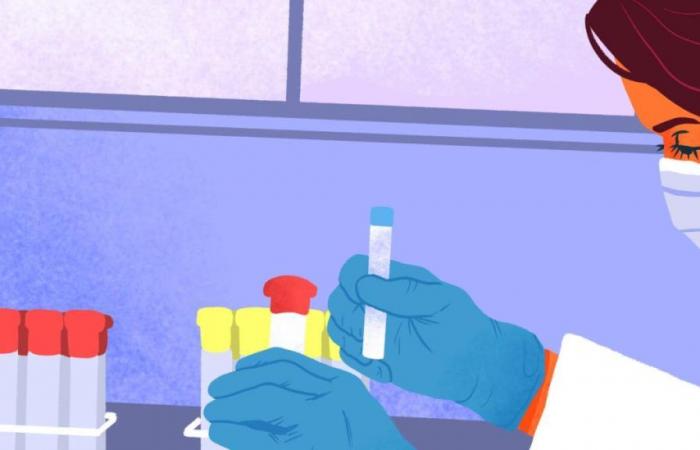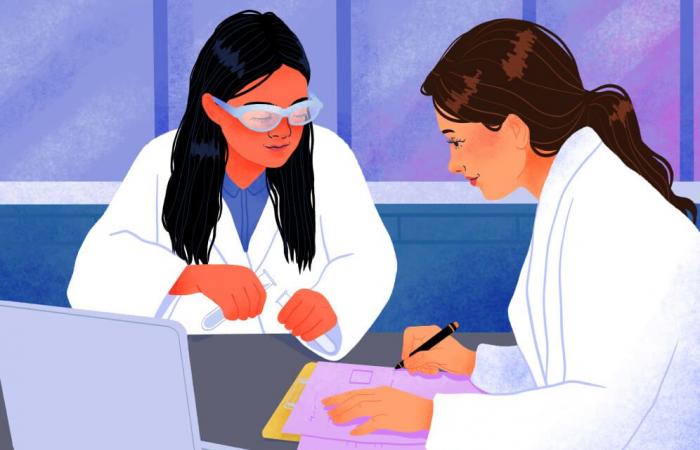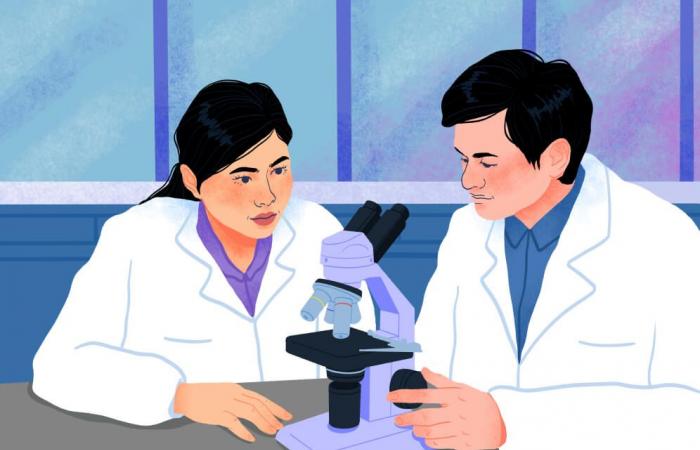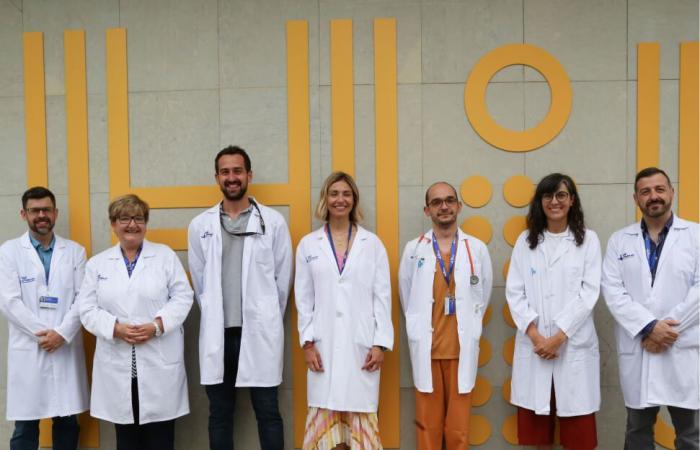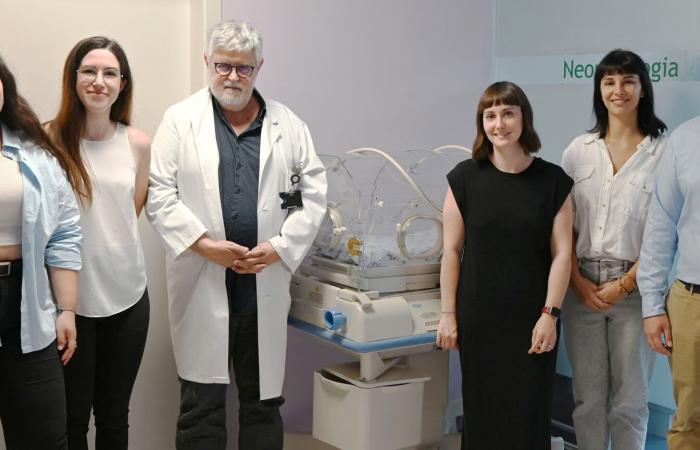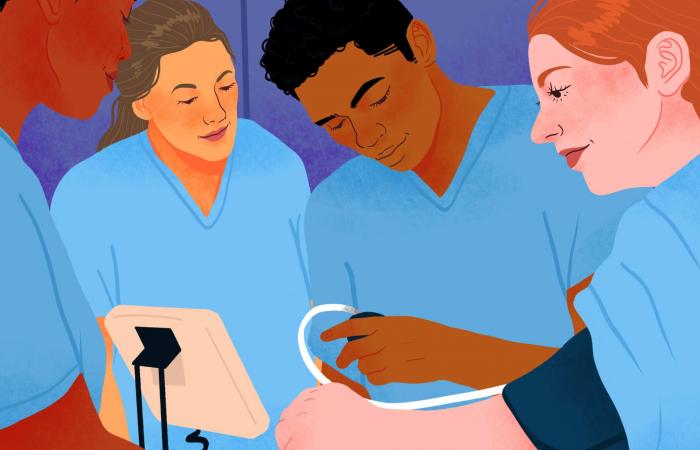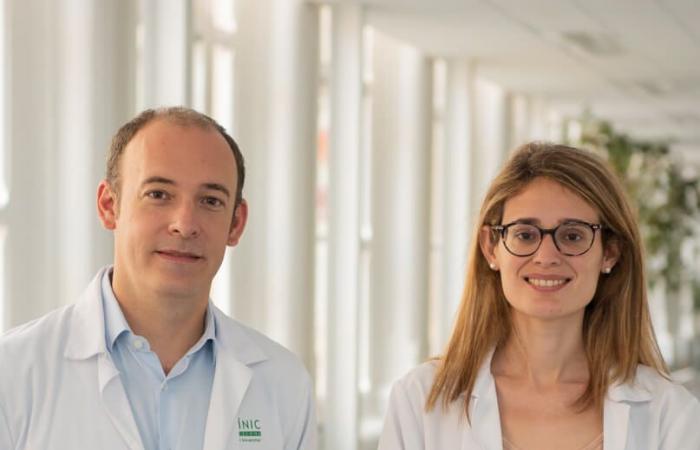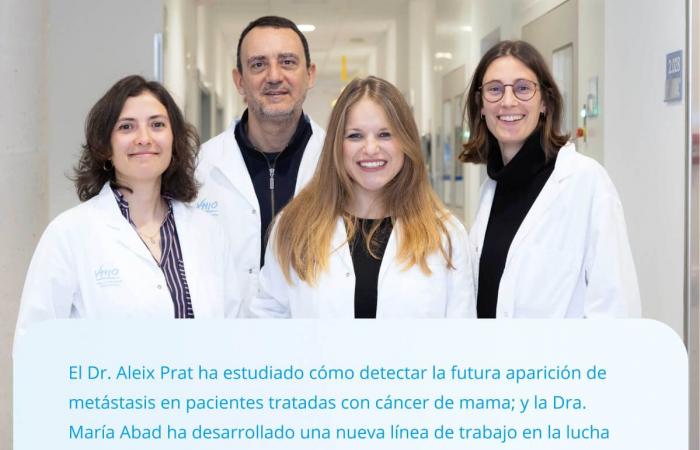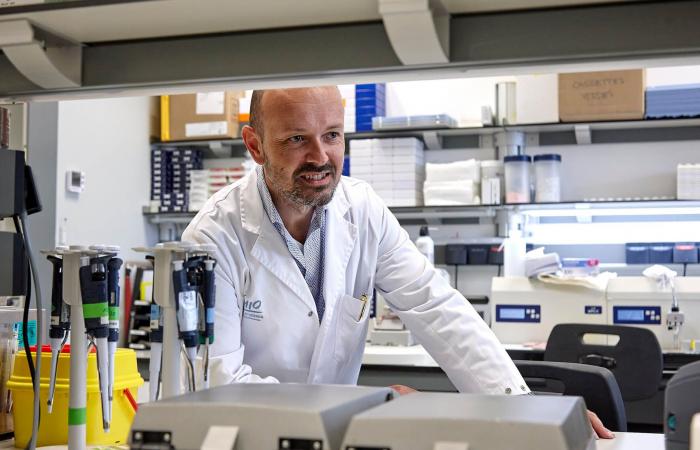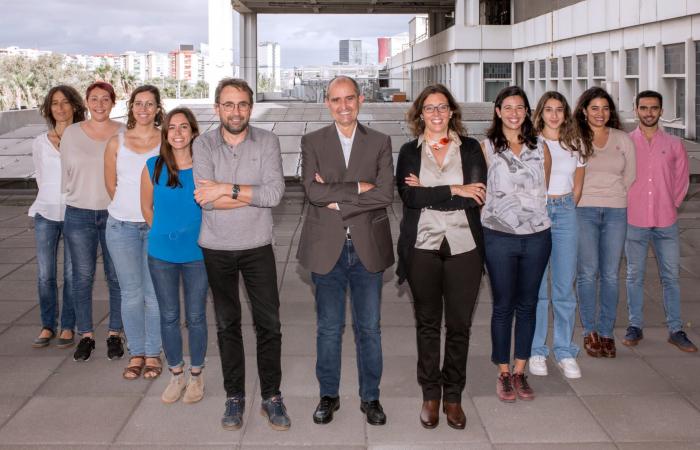A project by Mutua Madrileña
More than 8 million euros
During its twenty years of existence, the Mutua Madrileña Foundation has allocated more than 8 million euros in Catalonia alone (60 million in the entire country) to the development of medical research in fields such as rare diseases that manifest in childhood, traumatology and its consequences, transplants, oncology and child and adolescent mental health.
As is well known, Catalonia has been a benchmark community in terms of medical research for many years. This is due, of course, to the level of the projects developed by researchers, many of them pioneers in various fields of medicine, and also to the indispensable support of companies and organisations.
The Mutua Madrileña Foundation, created in 2003 with the aim of contributing to the improvement of society in various fields (including health), is an example of this private involvement, as confirmed by the more than a hundred funded projects. throughout its twenty years of history, to which it has already allocated some 8.3 million euros (which reaches 60 million in the thousand research projects carried out in Spain as a whole).
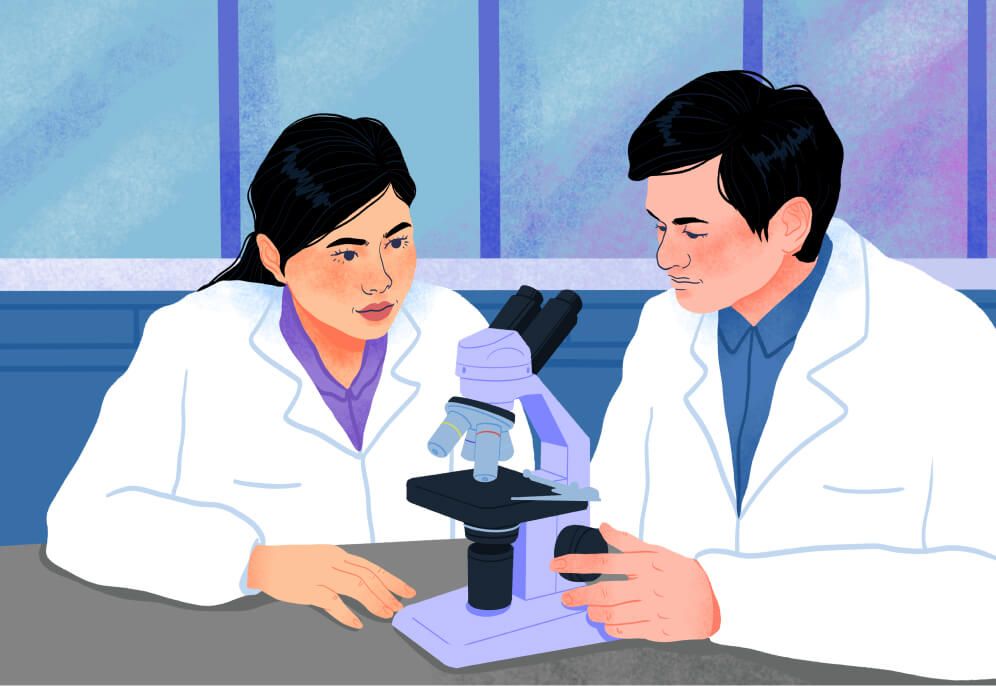
Research areas
This foundation, which is chaired, like the Mutua Group, by Ignacio Garralda, finances through its Annual Call for Medical Research Grants the carrying out of studies to improve the knowledge or treatment of diseases in clinical research centers throughout Spain. , focusing on five specific areas: rare diseases that manifest in childhood, traumatology and its sequelae (including neurological ones that can arise from serious trauma), transplants, oncology and child and adolescent mental health (the latter, incorporated from 2023). At the same time, it develops support programs for families whose children suffer from rare diseases, mainly autism or cancer.
The areas that receive research aid:
Every year, the Scientific Committee chaired by Dr. Rafael Matesanz, prestigious nephrologist and founder of the National Transplant Organization (ONT), studies the more than a hundred projects presented and chooses, based on criteria of medical and scientific interest, a fifteen of them as deserving of aid for their development.
In Catalonia, the investment has served to promote medical research, train new scientists and continue fighting multiple diseases; all of this, in collaboration with twenty universities, foundations, institutes and health research centers, most of them located in Barcelona
Improving organ quality
One of the most notable projects financed by the Mutua Foundation is the one developed in 2013 by Dr. Alberto Sandiumenge, transplant coordinator at the Vall d’Hebron University Hospital, who, together with his team, carried out a study thanks to which It has been possible to improve the quality of the organs offered for donation in controlled asystole (or cardiac arrest).
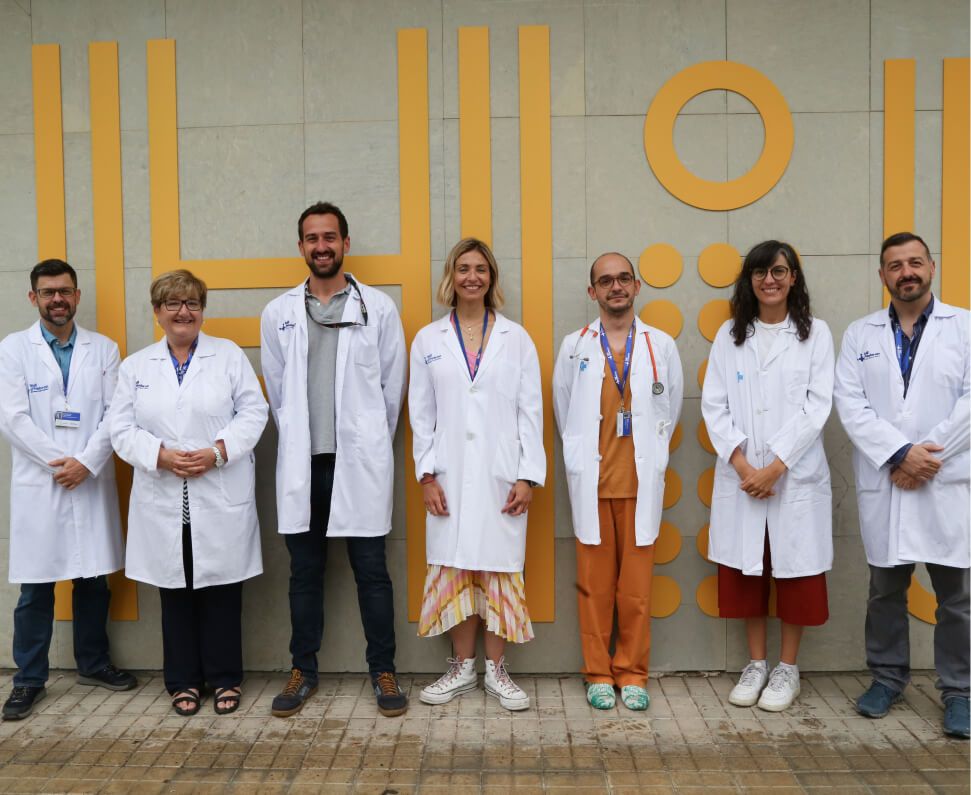
Dr. Alberto Sandiumenge, transplant coordinator at the Vall d’Hebron University Hospital, with his team
Advances in preservation techniques have allowed organs from donors in this condition – especially kidney, liver, pancreas and lung – to have a long-term survival comparable to that of those implanted from brain-dead donors. “Our research group works to seek innovative strategies that help optimize the process of donation, preservation, processing and transplantation of organs, tissues and cells in order to increase their availability, expand their functionality and improve their quality and safety,” he explains. Dr. Sandiumenge, and adds: “Highlighting those projects financed by the Mutua Madrileña Foundation, we have been able to evaluate the important role of the training of professionals in the implementation of new organ donation programs, we have delved into the inflammatory mechanisms that operate in different types of donation, its impact on the recipient and the possible treatments available to us.” Currently, Dr. Alberto Sandiumenge and his team are completing a research project on new ways to optimize donor maintenance, using strategies that increase both the number and quality of organs available for transplantation.
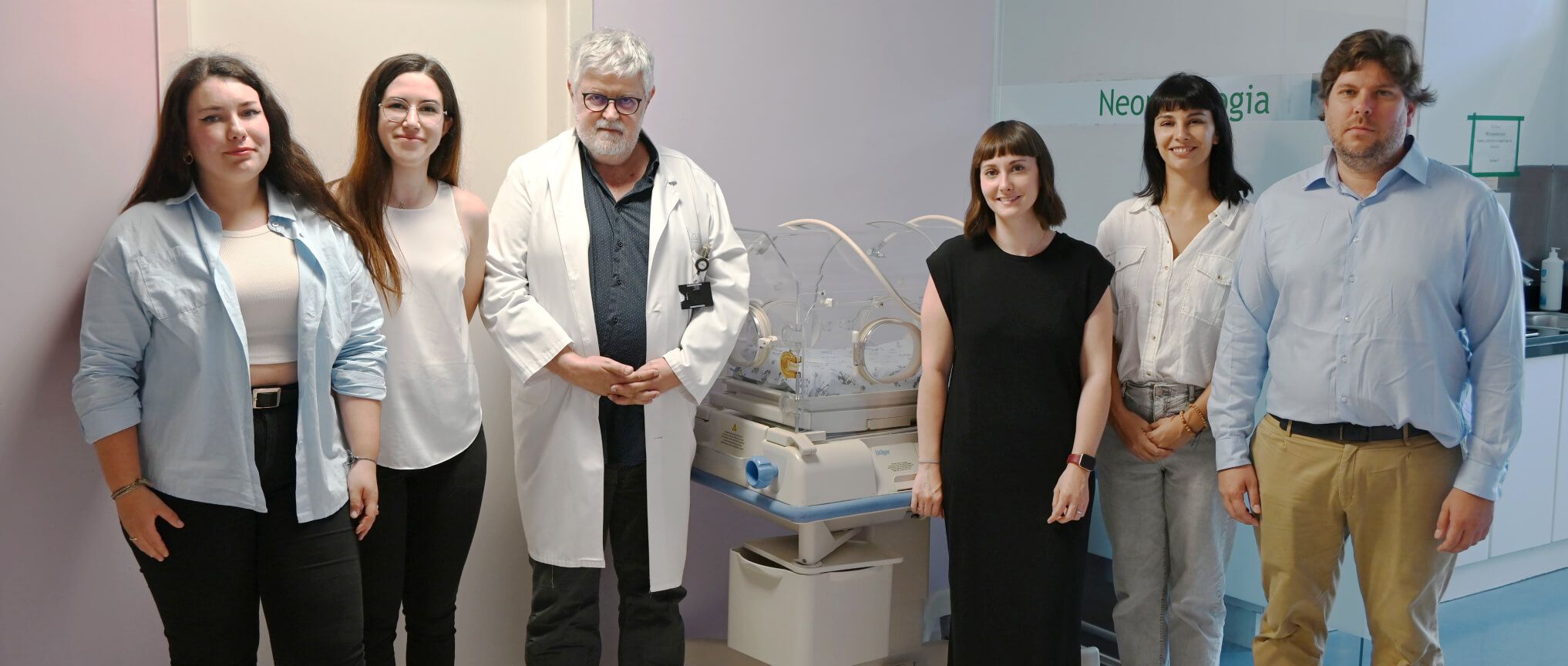
Dr. Oscar García Algar, head of the Neonatology Service at the Hospital Clínic Maternidad, with his team
Fighting neurological conditions in children
In recent years, funded research in the field of paediatrics has also yielded very promising results, particularly in improving cognitive performance. In 2015, Dr Óscar García Algar, head of the Neonatology Department at the Hospital Clínic-Maternidad and researcher at the August Pi i Sunyer Biomedical Research Institute (IDIBAPS) group on Fetal and Perinatal Medicine, began a study aimed at improving cognitive performance in children with Fetal Alcohol Spectrum Disorder (FASD), a group of conditions that can occur if the mother drank alcohol during pregnancy.
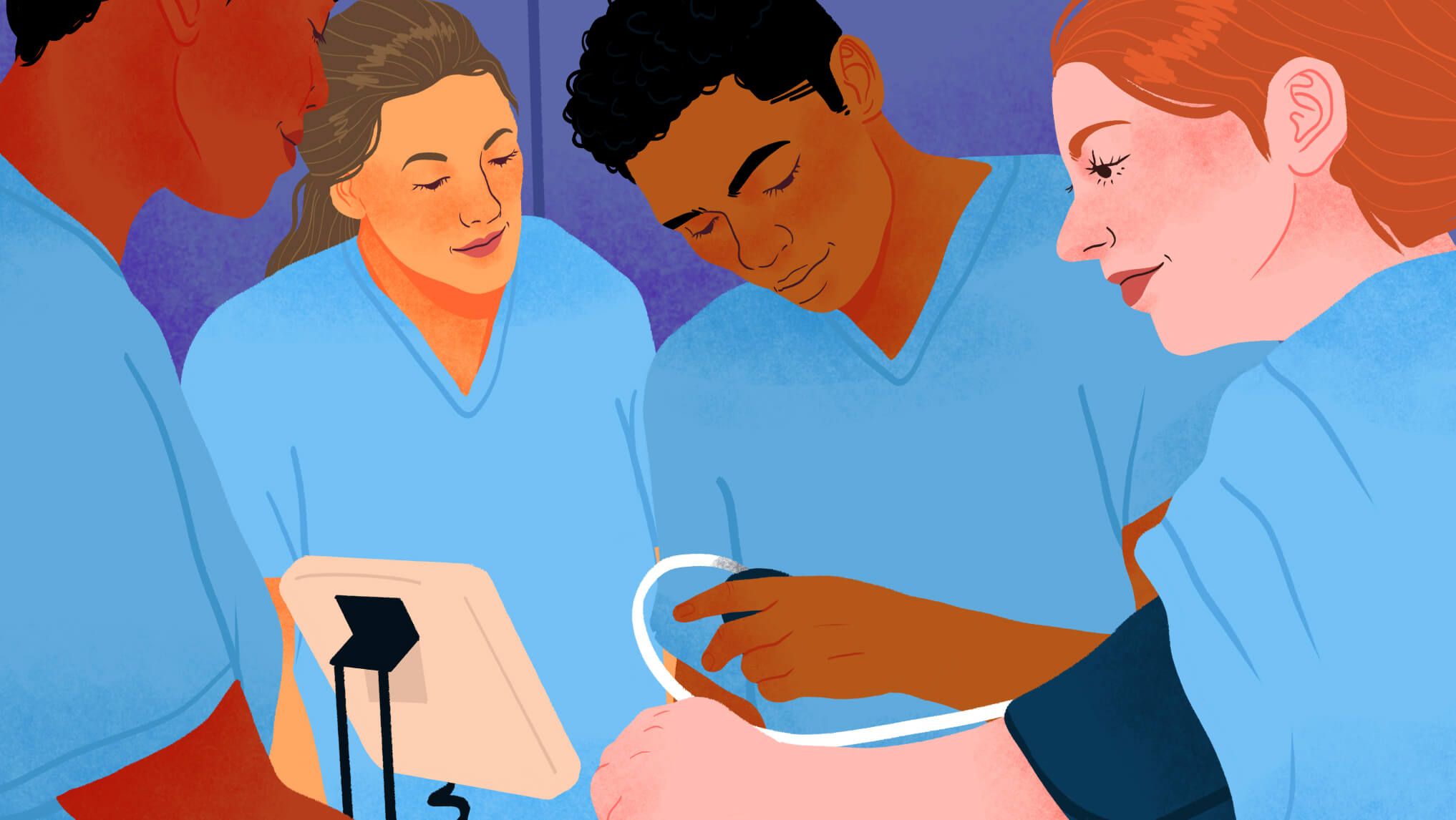
This fact can have consequences on the neurological development and the formation of the brain structures of the fetus. Although the damage caused cannot be reversed, Dr. García Algar is studying the options offered by various antioxidants to try to improve the behavior and cognitive ability of these children. “We have made relevant scientific contributions related to knowledge about the prevalence of alcohol consumption during pregnancy, the prevalence of its main deleterious effect (Fetal Alcohol Spectrum Disorder or FASD), evaluation of therapeutic candidates in animal models and in cohorts of children. and girls affected,” explains Dr. García Algar. Considering the advances obtained in the research, Fundación Mutua will finance a new study starting in 2023, which is currently in full development. In addition, they are working on the design of an App for the diagnosis of FASD based on AI tools and on the creation of therapeutic resources based on virtual reality for neurocognitive disorders.
Dr. Óscar García Algar works on advanced research aimed at improving the cognitive capacity of children who have neurological conditions because their mothers consumed alcohol during pregnancy
Advances in oncology research
Another relevant project was developed in 2018 by Dr. Aleix Prat, director of the Institute of Cancer and Blood Diseases at the Hospital Clínic de Barcelona. His study proved that the presence of tumor DNA in blood samples from patients treated for, and already free of, breast cancer can be an indicator of the appearance of metastasis years later. “Thanks to the help of the Mutua Madrileña Foundation, we have been able to analyze blood samples from patients with early breast cancer under follow-up, using very innovative technology,” says Dr. Prat. “These findings are allowing us to design our clinical studies in this context, which would not otherwise be possible,” he adds. In addition, this research is allowing relapses to be detected earlier than with imaging tests. And Dr. Prat went a step further by studying liquid biopsy, which is already used to select the most appropriate treatment and as a diagnostic tool for predicting metastasis.
For her part, Dr. María Abad, from the Vall d’Hebron Institute of Oncology (VHIO), carried out a study in 2019 that opened a new way to combat pancreatic cancer, laying the foundations so that, in the future, it can be be detected in plasma. Dr. Abad identified new micropeptides present in patients with this type of cancer that could provide new biomarkers for diagnosis, which may be crucial to reducing their mortality rate.
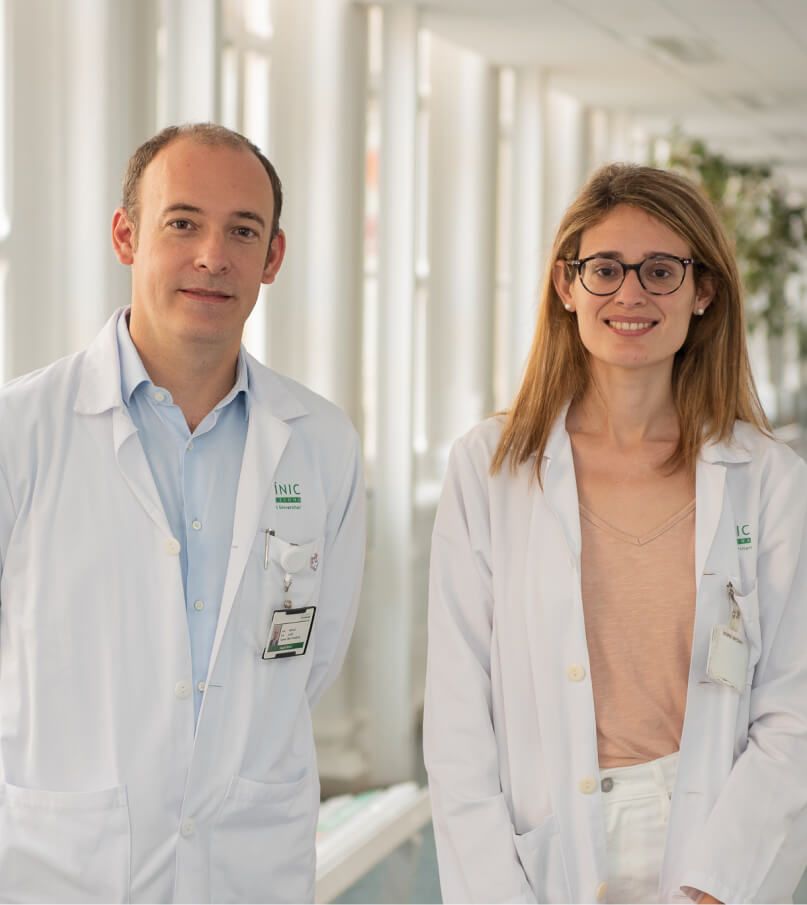
Dr. Aleix Prat, director of the Institute of Cancer and Blood Diseases at the Hospital Clínic de Barcelona, with Dr. Núria Chic
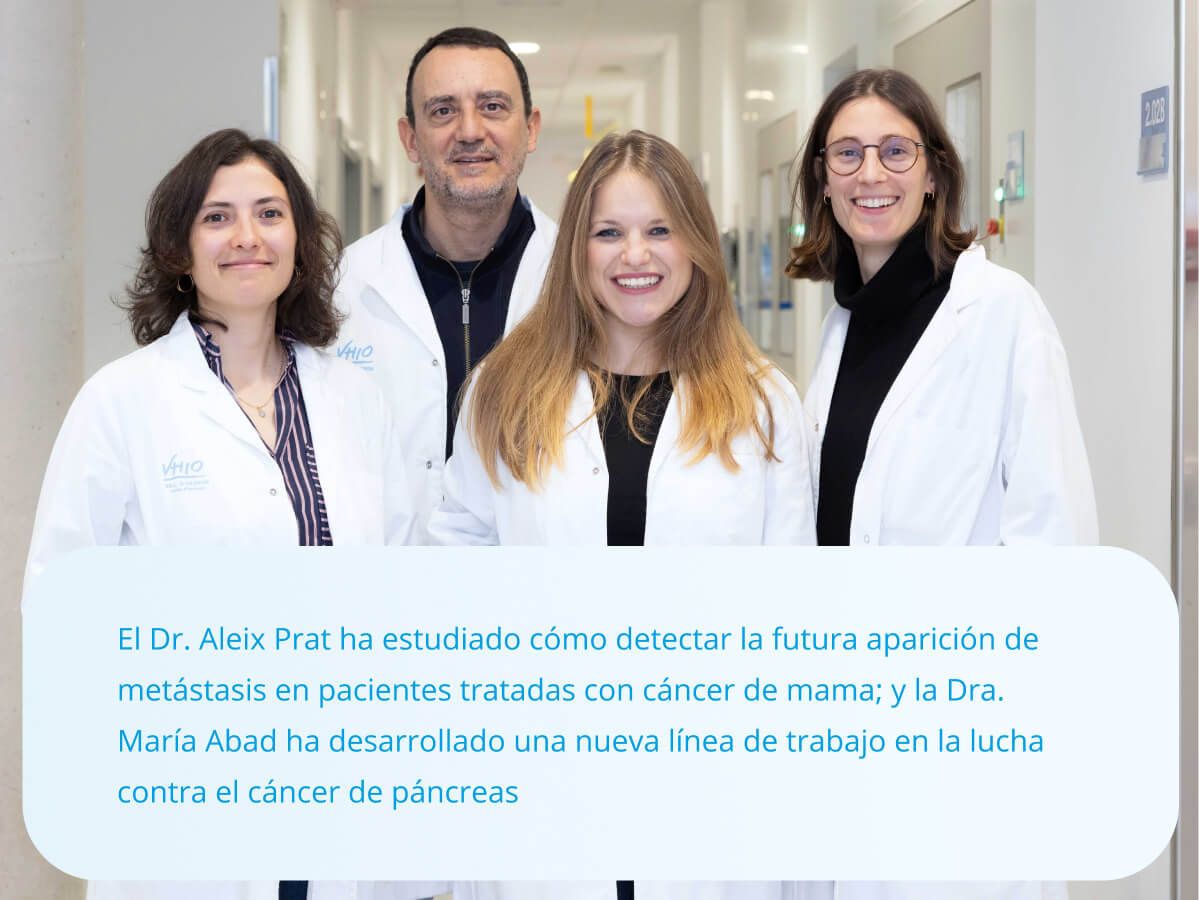
Dr. María Abad, group leader of the Vall d’Hebron Institute of Oncology (VHIO), with her team
Collaborative projects
In 2020, Dr. Paolo Nuciforo, from the Molecular Oncology Group at VHIO in Barcelona, led a collaborative project involving researchers from seven other hospitals in Catalonia, Andalusia, Cantabria, Valencia, Galicia and Madrid. The main objective was to determine the prevalence and infection patterns of the Fusobacterium bacteria in patients with colorectal cancer (CRC), in order to develop diagnostic and prognostic models based on the analysis of the microbiota (or intestinal flora).
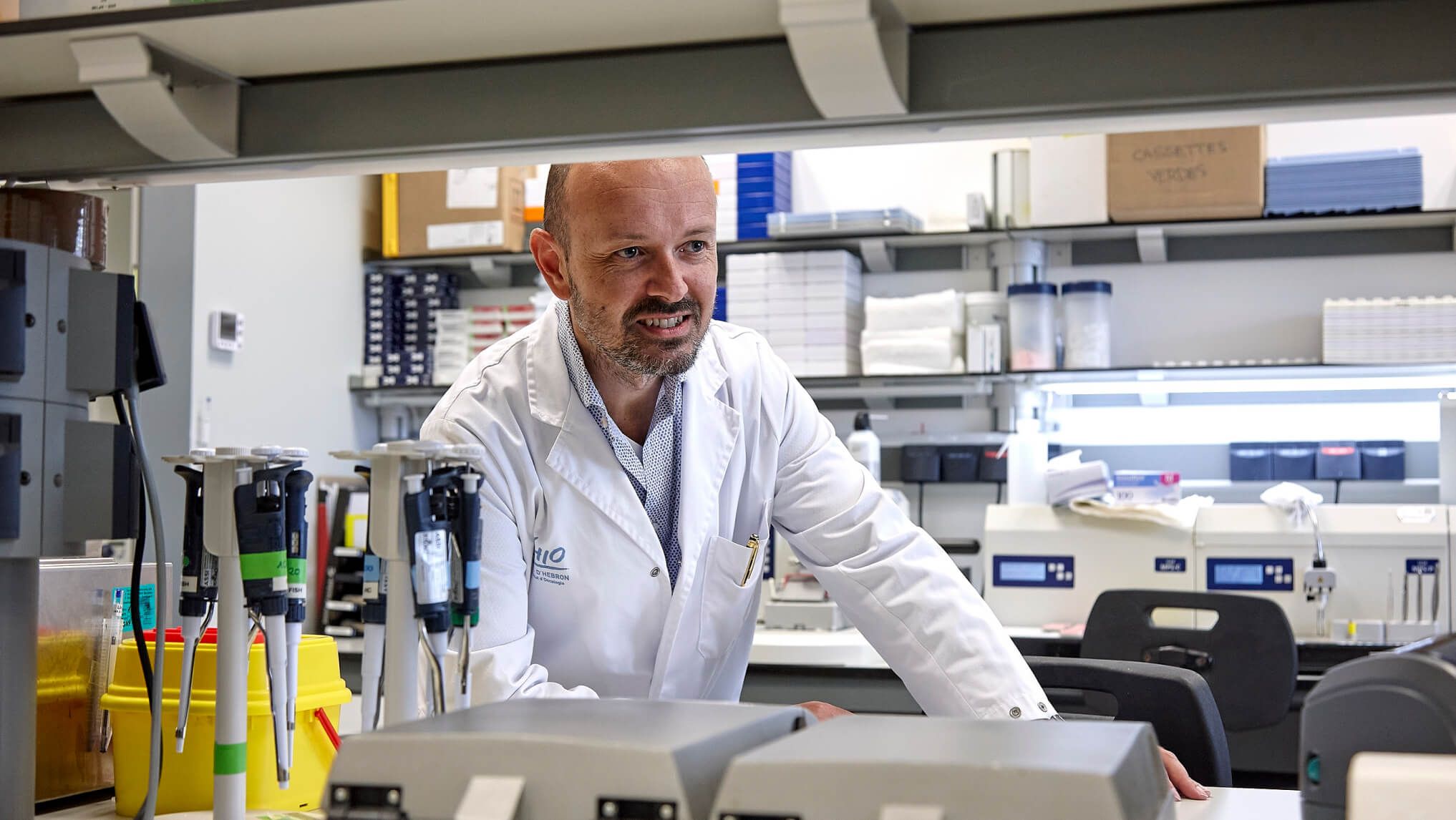
Dr. Paulo Nuciforo, from the Vall d’Hebron Institute of Oncology (VHIO)
Social commitment
The Mutua Foundation extends its activities to social action, through support for disadvantaged groups, cultural dissemination and road safety prevention. For more than 10 years, it has also launched an Annual Call for Social Projects, endowed with one million euros, to finance NGO initiatives in areas such as disability, support for victims of gender violence and trafficking, help for children with health problems, labour integration of young people at risk of exclusion, support for homeless people and development cooperation.
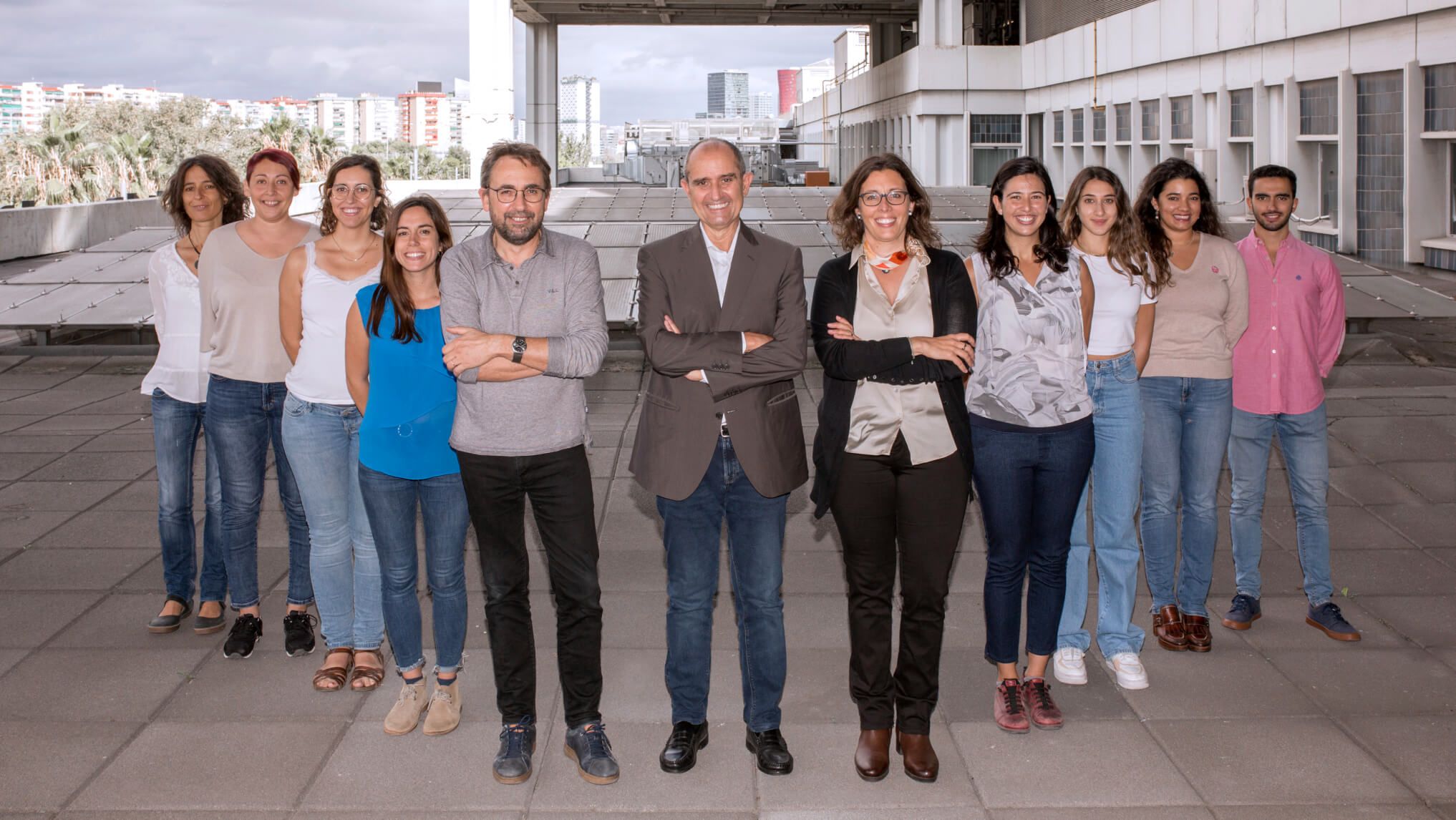
Dr. Marta Pineda’s team, from the Bellvitge Biomedical Research Institute (IDIBELL) and the Catalan Institute of Oncology. Dr. Pineda is conducting a clinical study on rare diseases that manifest in childhood
It also has more than 40 of its own active programmes, including the fight against bullying, helping young people in difficulty to continue their studies, training non-professional carers for Alzheimer’s patients, “humanising” children’s areas in hospitals, etc. In total, more than 350,000 people with some kind of disability have already directly benefited from these initiatives and social aid; and 1.5 million people have enjoyed the cultural programmes organised in museums, auditoriums and cultural centres that Fundación Mutua supports throughout Spain.
The Mutua Foundation not only supports medical research; it also develops social action programs from which more than 350,000 people from disadvantaged groups for multiple reasons have already benefited.
Credits
Coordination: Silvia Resola |
Editor: Enric Ros |
Design and layout: Alejandra Santander |
Illustration: Getty Images |
Photography: Mutua Madrileña, Getty Images, Vall d’Hebron University Hospital and Hospital Clínic of Barcelona.
A Brandslab project. Godó Vertical Media
Alejandra Santander Perez
06/29/2024 05:50

